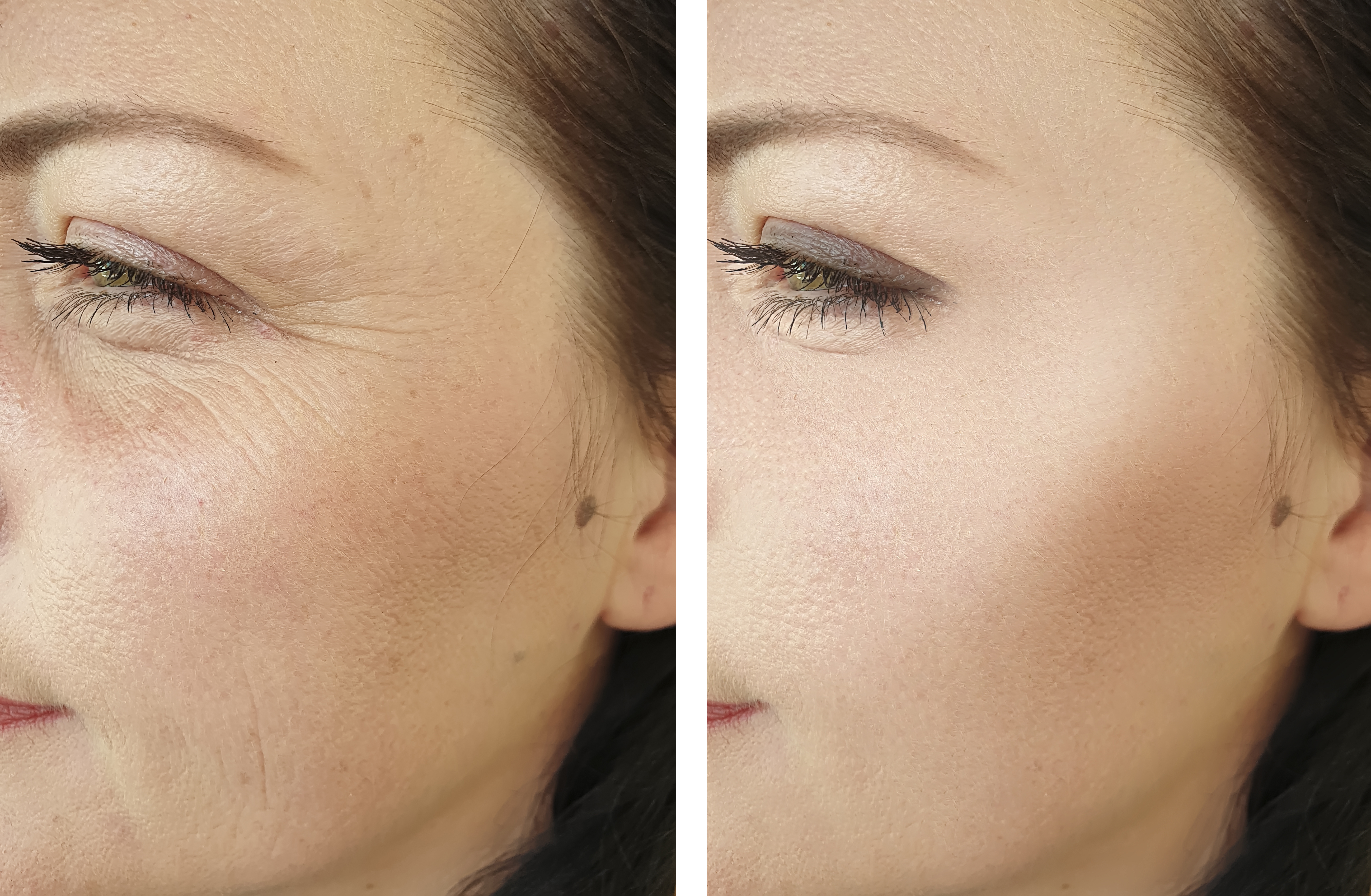Several scientific studies have proven the benefits of VERISOL® Bioactive Collagen Peptides over the past few years.
In December 2020, ANVISA in Brazil approved VERISOL® as a bioactive substance for use in dietary supplements, with the claim for maintaining skin health.
Read the official announcement here
- Collagen is essential to the skin and can be greatly affected by internal or external factors such as aging, sunlight pollution, smoking and inadequate nutrition.
- Bioactive Collagen Peptides (BCP®) are well established for their ability to positively influence human collagen metabolism.
THE SKIN AGING PROCESSOver the years, the amount of collagen our body produces begins to decrease. This reduction can reach an estimated rate of 1% each year, affecting the cellular structure of our skin and causing visible signs of aging, such as wrinkles and dryness, in addition to loss of skin firmness.
|
 |
|
|
VERISOL®is composed of Bioactive Collagen Peptides (BCP®) with an average molecular weight of 2kDa that have been specifically developed to provide benefits for nutricosmetics, with results noted from 4 weeks of use. |
|

1. ANVISA website 2. Kehlet SN et al. Age-related collagen turnover of the interstitial matrix and basement membrane: Implications of age- and sex-dependent remodelling of the extracellular matrix. PLoS One. 2018 Mar 29;13(3): e0194458 3. Shuster, S., Black, M. M. & McVitie, E. The influence of age and sex on skin thickness, skin collagen and density. Br J Dermatol. 6, 639–643 (1975). 4. Edgar S et al. Effects of collagen-derived bioactive peptides and natural antioxidant compounds on proliferation and matrix protein synthesis by cultured normal human dermal fibroblasts. Sci Rep. 2018 Jul 11;8(1):10474. 5. Stevenson S and Thornton J. Effect of estrogens on skin aging and the potential role of SERMs. Clin Interv Aging. 2007 Sep; 2(3): 283–297. 6. Jariashvili K, Madhan B, Brodsky B, Kuchava A, Namicheishvili L, Metreveli N. UV damage of collagen: insights from model collagen peptides. Biopolymers. 2012;97(3):189-98 7. Park SY et al. Air Pollution, Autophagy, and Skin Aging: Impact of Particulate Matter (PM 10) on Human Dermal Fibroblasts. Int J Mol Sci. 2018 Sep 12;19(9):2727 8. Knuutinen A, Kokkonen N, Risteli J, Vahakangas K, Kallioinen M, Salo T, et al. Smoking affects collagen synthesis and extracellular matrix turnover in human skin. The British journal of dermatology. 2002;146(4):588-94. 9. Danby FW. Nutrition and aging skin: sugar and glycation. Clinics in dermatology. 2010;28(4):409-11. 10. Jenkins G. Molecular mechanisms of skin ageing. Mech Ageing Dev. 2002 Apr;123(7):801-10 11. Iwai K, Hasegawa T, Taguchi Y, Morimatsu F, Sato K, et al. (2005) Identification of food-derived collagen peptides in human blood after oral ingestion of gelatin hydrolysates. J Agric Food Chem 53: 6531-6536. 12. Ichikawa S, Morifuji M, Ohara H, Matsumoto H, Takeuchi Y, et al. (2010) Hydroxyproline-containing dipeptides and tripeptides quantified at high concentration in human blood after oral administration of gelatin hydrolysate. Int J Food Sci Nutr 61: 52-60. 13. Ohara H, Ichikawa S, Matsumoto H, Akiyama M, Fujimoto N, Kobayashi T, et al. Collagen-derived dipeptide, proline-hydroxyproline, stimulates cell proliferation and hyaluronic acid synthesis in cultured human dermal fibroblasts. The Journal of dermatology. 2010;37(4):330-8. 14. Proksch E, Segger D, Degwert J, Schunck M, Zague V, Oesser S. Oral supplementation of specific collagen peptides has beneficial effects on human skin physiology: a double-blind, placebo-controlled study. Skin pharmacology and physiology. 2014;27(1):47-55 15. Schunck M, Zague V, Oesser S, Proksch E. Dietary Supplementation with Specific Collagen Peptides Has a Body Mass Index-Dependent Beneficial Effect on Cellulite Morphology. Journal of medicinal food. 2015;18(12):1340-8 16. Proksch E, Schunck M, Zague V, Segger D, Degwert J, Oesser S. Oral intake of specific bioactive collagen peptides reduces skin wrinkles and increases dermal matrix synthesis. Skin pharmacology and physiology. 2014;27(3):113-9 17. Hexsel D et al. Oral supplementation with specific bioactive collagen peptides improves nail growth and reduces symptoms of brittle nails. J Cosmet Dermatol. 2017 Dec;16(4):520-526. 18. Aldag C, Nogueira Teixeira D, Leventhal PS. Skin rejuvenation using cosmetic products containing growth factors, cytokines, and matrikines: a review of the literature. Clinical, cosmetic and investigational dermatology. 2016;9:411-9.

